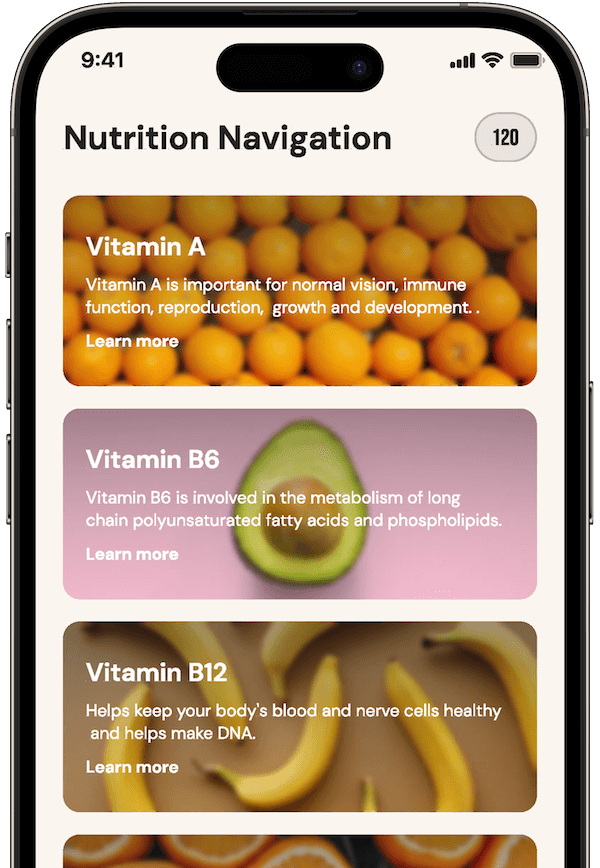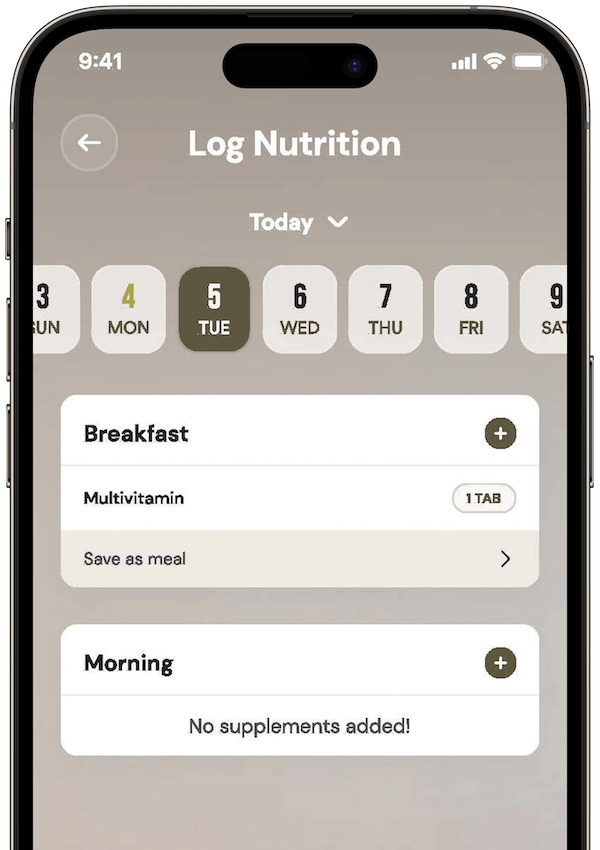Living with adenomyosis since my twenties, I’ve experienced firsthand how the right diet can significantly influence symptoms. After years of struggling with pain and bloating, my journey into nutrition and becoming a certified nutrition coach through the Institute of Integrative Nutrition in New York opened my eyes to how certain foods could trigger or alleviate my symptoms.
This personal discovery led me to develop the Unprocessed App, aiming to help others monitor their diet and manage conditions like adenomyosis.
Certain foods can exacerbate adenomyosis symptoms by promoting inflammation or hormonal imbalances. Foods high in processed sugars, trans fats, and certain dairy products can trigger flare-ups. Conversely, anti-inflammatory foods and those that support hormonal balance, such as leafy greens and fatty fish, can help manage symptoms.
What Is Adenomyosis?

Adenomyosis is a condition where the endometrial tissue, which normally lines the uterus, grows into the muscular wall of the uterus. This growth can cause pain, heavy menstrual bleeding, and a bloated abdomen, often referred to as “adenomyosis belly.”
What Diet Worsens Adenomyosis Symptoms?
Foods high in oestrogen, such as soy products and certain dairy items, can exacerbate adenomyosis symptoms because they contribute to hormonal imbalances, particularly the excess of oestrogen relative to progesterone. This hormonal imbalance can stimulate the growth of endometrial tissue within the muscular walls of the uterus, intensifying symptoms like pain, heavy bleeding, and inflammation.
Additionally, foods that promote inflammation, such as processed meats and sugary snacks, worsen these symptoms by increasing the body’s inflammatory responses. This heightened inflammation not only aggravates the pain and discomfort associated with adenomyosis but also contributes to the overall severity of the swelling and bloating, commonly known as adenomyosis belly.
Therefore, managing the intake of these foods is crucial for mitigating the uncomfortable symptoms associated with this condition.
Foods High in Oestrogen
Foods high in oestrogen, particularly those containing phytoestrogens, can have a varying impact on the body, potentially exacerbating symptoms of conditions like adenomyosis. Here’s a more detailed list of foods high in oestrogen and their distinct impacts:
- Soy Products: This category includes tofu, soy milk, tempeh, and edamame. Soy contains isoflavones, a type of phytoestrogen that mimics oestrogen in the body. These compounds can bind to oestrogen receptors and either mimic or block the hormone’s effects. In adenomyosis, they may stimulate endometrial growth, worsening symptoms such as pain and bleeding.
- Flaxseeds: Rich in lignans, another type of phytoestrogen, flaxseeds have one of the highest concentrations of phytoestrogens in the diet. They can have both estrogenic and anti-estrogenic effects, depending on the existing level of oestrogen in the body. While beneficial for some hormonal balances, in adenomyosis, they might contribute to symptom severity by promoting the growth of endometrial tissue.
- Sesame Seeds: Similar to flaxseeds, sesame seeds are also high in lignans. They offer a range of health benefits but can act similarly by influencing oestrogen activity, which might not be favourable for those with adenomyosis.
- Chickpeas: Chickpeas and other legumes contain phytoestrogen compounds that can influence oestrogen activity in the body. While generally promoting health, their impact on adenomyosis can vary based on individual hormonal levels and sensitivities.
- Dairy Products: Some dairy products may contain estrogenic substances due to the presence of naturally occurring hormones in milk-producing animals. These products can influence oestrogen levels in the body, potentially aggravating adenomyosis symptoms.
- Dried Fruits: Especially dried apricots, dates, and prunes, these are also sources of phytoestrogens. They provide concentrated doses when consumed in significant amounts, possibly impacting oestrogen levels.
Each of these foods can affect the body differently based on individual factors like existing hormone levels, overall diet, and how much of these foods are consumed. For someone with adenomyosis, the effect of these foods will largely depend on how they interact with the body’s existing oestrogen levels and the sensitivity of oestrogen receptors in the uterine tissue.
Inflammatory Foods to Avoid

Foods that promote inflammation can have varied impacts on the body, depending on their components and the overall dietary context. Here’s a deeper look at some common inflammatory foods and how they might differently affect the body:
- Processed Meats: Such as sausages, bacon, and deli meats, these contain high levels of saturated fats and advanced glycation end products (AGEs), which are formed when these meats are cooked at high temperatures. These substances can trigger inflammatory processes in the body, exacerbating conditions like adenomyosis by promoting inflammation around the endometrial tissues.
- Foods with Trans Fats: Found in some margarines, packaged baked goods, and many types of fast food, trans fats are created by adding hydrogen to vegetable oil (hydrogenation), which makes the oil more solid. They are known to increase levels of ‘bad’ LDL cholesterol and decrease ‘good’ HDL cholesterol, leading to inflammation throughout the body, including in the pelvic region which can worsen adenomyosis symptoms.
- High-Sugar Snacks and Beverages: Foods and drinks high in refined sugars, such as sodas, candies, and most processed snacks, can cause a spike in blood sugar and insulin levels. This spike can trigger an inflammatory response, as high blood sugar levels lead to the production of AGEs, promoting inflammation which can exacerbate adenomyosis pain and discomfort.
- Refined Carbohydrates: White bread, white rice, and pastries strip away beneficial fibre during processing and provide little nutrition. These carbs can cause quick spikes in blood sugar and insulin, similar to high-sugar foods, leading to increased inflammation.
- Alcohol: Excessive alcohol consumption can disrupt several bodily processes, including causing an imbalance in the gut microbiome, which can lead to systemic inflammation. The impact on the gut also affects the immune system’s ability to regulate inflammation, potentially worsening adenomyosis symptoms.
- Artificial Additives: Certain artificial colorings, preservatives, and flavourings found in processed food can trigger inflammatory processes in the body. Some individuals may be more sensitive to these chemicals than others, experiencing heightened inflammatory responses that can aggravate adenomyosis.
Each of these food types affects the body’s inflammatory pathways differently, but all can contribute to the inflammation associated with adenomyosis. Modulating intake of these foods, focusing on a diet rich in whole, unprocessed foods, and possibly tracking dietary impacts with tools like the Unprocessed App, can help manage and reduce adenomyosis symptoms effectively.
Can Certain Foods Help Alleviate Adenomyosis Symptoms?

Incorporating specific foods into your diet can significantly reduce the symptoms of adenomyosis by targeting inflammation and hormonal imbalances. Anti-inflammatory foods help to soothe the body’s inflammatory responses, crucial in managing the pain associated with adenomyosis.
Simultaneously, foods that promote hormonal balance can regulate oestrogen levels, crucial for controlling the growth of endometrial tissue. This dual approach offers a strategic way to mitigate the discomfort and complications of adenomyosis.
Anti-Inflammatory Foods That Benefit Adenomyosis
Incorporating foods with anti-inflammatory properties can help reduce adenomyosis pain and swelling:
- Turmeric: Contains curcumin, a potent anti-inflammatory compound. Curcumin helps reduce inflammation by blocking NF-kB, a molecule that travels into the nuclei of cells and turns on genes related to inflammation. Turmeric is particularly effective in reducing inflammation related to chronic conditions and is often used in higher concentrations in supplements.
- Leafy Greens (such as spinach and kale): Rich in antioxidants, vitamins, and minerals that help reduce inflammation. These greens contain high levels of vitamins A, C, and K, which can help protect your cells from oxidative stress and reduce inflammation markers in the blood.
- Berries (like blueberries and strawberries): Packed with antioxidants known as anthocyanins, which have potent anti-inflammatory effects. These compounds help reduce the risk of disease by combating oxidative stress and reducing inflammatory markers.
- Omega-3 Rich Fish (such as salmon, mackerel, and sardines): These fish are high in omega-3 fatty acids, specifically EPA and DHA, which are known for their strong anti-inflammatory effects. Omega-3 fatty acids can reduce the production of molecules and substances linked to inflammation, such as inflammatory eicosanoids and cytokines.
- Nuts (like almonds and walnuts): Nuts are another good source of healthy fats, including ALA omega-3 fatty acids. They also contain antioxidants that can help control inflammation. Walnuts, for instance, have high amounts of alpha-linolenic acid, a type of plant-based omega-3 known to help reduce inflammation.
- Olive Oil: A staple in the Mediterranean diet, extra virgin olive oil is rich in monounsaturated fats and oleocanthal, a compound that has been found to work similarly to ibuprofen, an anti-inflammatory drug. Regular consumption of olive oil has been linked to reductions in inflammatory markers and a lower risk of chronic diseases.
- Ginger: Similar to turmeric, ginger contains potent anti-inflammatory compounds such as gingerols, which inhibit the synthesis of pro-inflammatory cytokines. Ginger is particularly effective in reducing inflammation-related pain and is often used in traditional remedies for its anti-inflammatory properties.
Each of these foods affects inflammation differently, targeting various aspects of the inflammatory response. By including a variety of these foods in your diet, you can help reduce overall inflammation and potentially alleviate symptoms associated with conditions like adenomyosis.
Foods That Support Hormonal Balance
- Whole Grains (such as brown rice and quinoa): These grains are rich in fibre, which plays a crucial role in binding excess hormones, particularly oestrogen, and removing it from the body through the digestive tract. Fibre helps stabilise blood sugar levels, which is important because insulin fluctuations can impact other hormones.
- Vegetables (especially cruciferous ones like broccoli and cauliflower): These vegetables contain compounds called indole-3-carbinol, which naturally help in breaking down oestrogen in the body. They also boost liver function, enhancing the detoxification of excess hormones to maintain hormonal balance.
- Fatty Fish (such as salmon and mackerel): Rich in omega-3 fatty acids, these fish help reduce inflammation, which can influence hormonal activities and alleviate symptoms of hormonal imbalances. Omega-3s also support brain health, which is crucial for the regulation of the endocrine system that produces hormones.
- Avocado: Avocados are rich in beta-sitosterol, a compound that has been shown to balance cortisol levels and improve the body’s stress response. Additionally, avocados contain healthy fats that support overall hormonal health and promote a healthy reproductive system.
- Nuts (such as almonds and walnuts): Nuts are not only great for their anti-inflammatory properties but also provide essential fats that are vital for hormone production. They contain vitamin E, which plays a role in regulating oestrogen levels and can help mitigate the symptoms of hormonal imbalances.
- Eggs: Eggs are a nutritious source of vitamins D, B6, and E, which are critical for hormone balance. Vitamin D is essential for hormone function, vitamin B6 regulates hormonal activity, and vitamin E can alleviate menstrual pain associated with hormonal fluctuations.
- Seeds (such as flax seeds and sesame seeds): The impact of seeds like flax seeds and sesame seeds on adenomyosis is nuanced due to their lignan content, which are phytoestrogens. These can either help or hinder depending on one’s hormonal balance. In cases of oestrogen dominance—a common issue in adenomyosis—lignans can block some of the body’s oestrogen effects, potentially alleviating symptoms by preventing excessive growth of endometrial tissue. However, if oestrogen levels are low or normal, these same phytoestrogens could mimic oestrogen and disrupt hormonal balance, possibly worsening symptoms. Thus, incorporating seeds into a diet should be done with consideration of individual hormonal levels, ideally under the guidance of a healthcare professional to ensure that their inclusion supports overall hormonal health without exacerbating the condition.
Foods High in Fiber that Benefit Adenomyosis
Incorporating high-fibre foods into your diet is particularly beneficial for managing adenomyosis. Fibre helps regulate the body’s use of sugars, keeping hunger and blood sugar in check. It’s also essential for bowel health, which can be compromised by the symptoms of adenomyosis.
More importantly, fibre helps to manage oestrogen levels by binding to excess hormones in the digestive tract and aiding in their excretion. This hormonal regulation can alleviate some of the symptoms associated with adenomyosis, such as inflammation and uterine pain.
Here are some fibre-rich foods that are especially good for adenomyosis management:
- Whole Grains: Choose quinoa, barley, and old-fashioned oats, which provide lasting energy and substantial fibre.
- Vegetables: Broccoli, Brussels sprouts, and carrots not only offer fibre but also important nutrients that support overall health.
- Fruits: Apples, berries, and pears are high in fibre and antioxidants, making them great choices for a hormone-balancing diet.
How to Identify Your Personal Adenomyosis Food Triggers
Given the complex ways in which foods like seeds can influence adenomyosis symptoms depending on individual hormonal balances, undertaking an elimination diet and maintaining a food diary can be highly beneficial.
This approach allows you to identify how specific foods affect your symptoms, tailoring your diet to optimise your hormonal health. The Unprocessed App is an excellent tool for this purpose, offering features that facilitate tracking your food intake and symptom patterns. Join the waitlist today and be one of the first to experience taking control of your symptoms with just a few taps.
By systematically observing and recording dietary impacts, you can make informed adjustments, enhancing the effectiveness of your nutritional management strategy.
Integrating a Balanced Diet for Adenomyosis Management

Regularly tracking your diet is not just about maintaining nutritional balance; it’s a powerful means of gaining deep insights into how specific foods influence your adenomyosis symptoms.
Using an elimination diet, where you systematically remove and then reintroduce foods into your diet, helps pinpoint which foods trigger symptoms. Keeping a detailed food diary, as facilitated by the Unprocessed App, allows you to observe correlations between your dietary habits and symptom flare-ups, equipping you with the knowledge to make informed dietary choices.
The Unprocessed App enhances this process by providing tools for detailed tracking and analysis. It can help you maintain a log of your daily food intake, symptoms, and overall well being, making it easier to spot trends over time. Additionally, the app can offer personalised feedback based on the data you enter, suggesting dietary adjustments that might reduce inflammation or hormonal imbalances associated with adenomyosis.
FAQs about Adenomyosis and Diet
Are There Supplements That Can Help With Adenomyosis Symptoms?
Omega-3 fatty acids, magnesium, and vitamin D are just some of the supplements that may improve symptoms but consult a healthcare provider before starting any supplements.
Can Dietary Changes Replace Medical Treatment for Adenomyosis?
Dietary changes complement but do not replace medical treatments prescribed by professionals.
How Long Does It Take to See Improvements in Symptoms After Dietary Changes?
Some may notice improvements within a few weeks, but it varies by individual.
Closing Thoughts
By understanding and managing your diet, you can significantly influence your adenomyosis symptoms. The Unprocessed App supports this by offering tools to monitor dietary intake, symptoms, and overall wellness, enhancing both adenomyosis management and general women’s health.

With personalised insights and expert advice, our app empowers you to take control of your health. Join the waitlist now to get early access upon its release and start your journey toward improved well-being.



